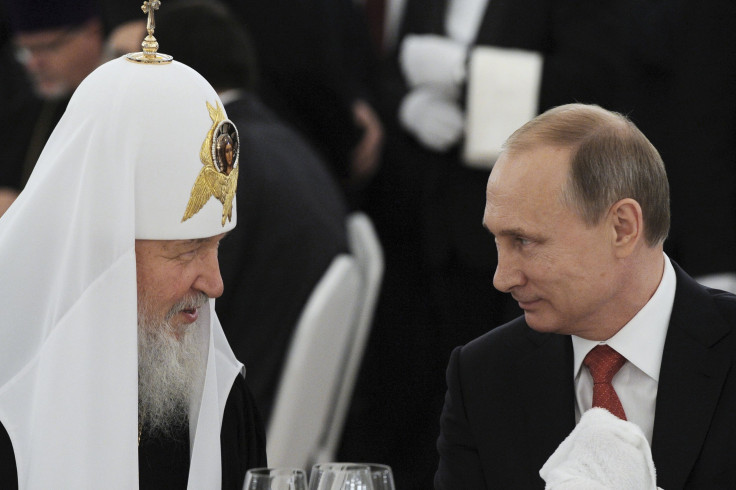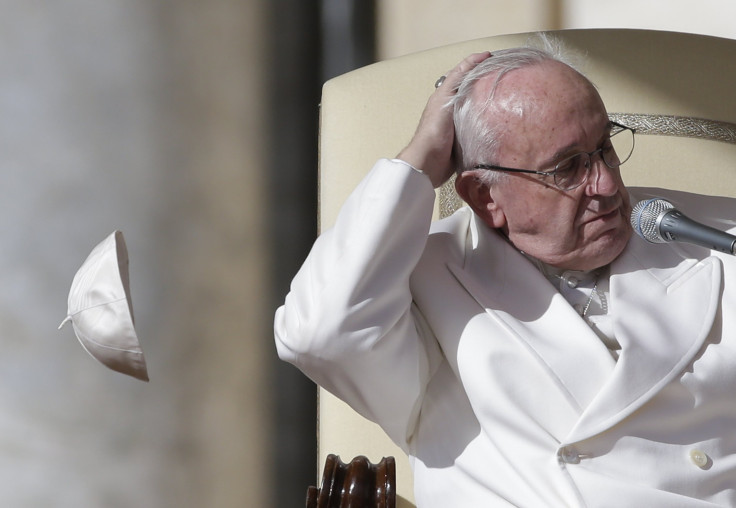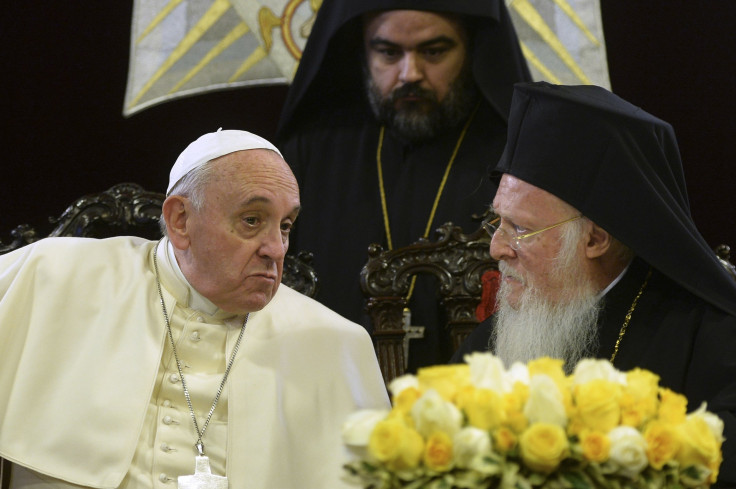Political Agendas, Speculation Swirl Ahead Of Historic Pope-Patriarch Meeting

MOSCOW — It's a détente that's been a long time coming: Almost a thousand years have elapsed since the estrangement of the western and eastern branches of Christianity, but Pope Francis and Russia’s Orthodox Patriarch Kirill are prepared to turn the other cheek when they meet Friday, in an airport on the island of Cuba.
Amid feverish speculation, church officials in Moscow and the Vatican are hailing the event as a step towards unity in the face of rising levels of violence against Christians in Africa and the Middle East.
But the consequences of such a historic encounter are not just religious. President Vladimir Putin has closely aligned himself with a resurgent Russian Orthodox Church and experts said the papacy risks handing the Kremlin a foreign policy coup.
“There are a whole range of questions to which answers are in the interests of the Russian authorities as well as the Orthodox Church,” said Andrei Kortunov, the head of the Moscow-based New Eurasia Foundation think tank.
The Kremlin, which suffered Western sanctions and international isolation over the Ukraine crisis, has been seeking to re-establish a prominent position on the world stage in recent months, including via a bombing campaign in Syria that has made Russia a key player in negotiations to end the country’s bloody civil war.
A regular visitor to the Vatican in his 15 years at the top of Russian politics, Putin has met the current pope in 2013 and 2015. Experts in Moscow said there is little doubt that Kirill — who once described Putin’s rule as a “miracle of God” — received the Russian leader’s approval in advance of the meeting with the pope.

“The Russian state is looking for a channel of communication with the West and the patriarch is a courier,” said Alexei Venediktov, the head of Russia’s liberal Ekho Moskvy radio station, last week.
Kirill was set to arrive in Cuba Thursday evening on the first leg of a 10-day Latin America tour. His meeting Friday in Havana's airport with Francis, who will stop by on his way to Mexico, is expected to last two hours and result in the signing of a joint declaration.
The stakes are particularly high for Francis. Aside from the possibility of Kremlin grandstanding, the pontiff risks angering Catholics who support isolating Putin, non-Russian Orthodox Christians suspicious of the Moscow patriarchate and Eastern Catholics alarmed by Kremlin aggression in Ukraine.
Negotiations over the meeting have been taking place for some 20 years, with a planned encounter in 1997 canceled by the Russian Orthodox Church because of hostility over perceived Roman Catholic proselytizing in the former Soviet Union.
“The patriarchs, frankly, are no less imperialistic than the Tsars, the Soviets or Putin,” said Thomas Noble, a papal history professor at Notre Dame University, in written comments. “Francis has surely taken a very gentle and accommodating stand where many old antagonisms are apparent.”

In February 2015, Pope Francis was criticized by Ukrainian religious figures for downplaying the role of Russian military support for rebels in the east of the country after he described Ukraine’s conflict as “fratricidal.”
Russian church officials in Moscow said one of the reasons the meeting had finally come about was Francis' less antagonistic stance. The pontiff's Argentinian origins may also be a key factor, with the previous two incumbents of the papal throne born in Europe and associated with the historical baggage of the continent’s division after World War II.
One Orthodox church official in Moscow said earlier this week that Francis had not been “spoiled by capitalism.”
Attitudes among Orthodox believers towards Roman Catholicism in Russia have also shifted in recent years. "In the 1990s the rhetoric of Orthodox believers was quite unwelcoming towards the Roman Catholic Church, but since then the attitude has changed greatly: Catholics are among the most quoted authors in our magazine, for instance," said Anna Danilova, the chief editor of the Orthodox Pravmir website.
The unprecedented meeting comes at a time of upheaval in the Middle East and North Africa, and both sides maintain that the key reason behind the decision to meet has been what the Russian patriarchate described in a statement as the ongoing “genocide of the Christian population.” Charities and monitoring groups have highlighted an increase of religious persecution in the region that has accompanied the rise of extremism, including the Islamic State group in Iraq and Syria.
Ecclesiastical politics is likely also to have featured in Kirill's calculations, with the Russian Orthodox Church looking to bolster its position within the wider Orthodox community ahead of a June 16-27 gathering of the Pan-Orthodox Council, a forum for all Orthodox churches worldwide that has been 40 years in the organizing. Kirill is seeking to show himself to be as close to Rome as Ecumenical Patriarch Bartholomew of Constantinople, the conference’s chief convener, who has met the pope several times, most recently in 2014.

The discussion between Francis and Kirill will be the first direct contact between a reigning pontiff and a Russian patriarch since the Christian church officially split between East and West in 1054 when Cardinal Humbert, the pope’s representative, marched into the Hagia Sophia in Constantinople and placed a papal bull of excommunication on the altar.
Since the 15th century, Moscow has traditionally cast itself as the "third Rome" — tracing its succession down through the schism with the papacy in Rome, and then the fall of Constantinople, the "second Rome," to the Turks in 1453.
Relations between Orthodoxy and the papacy only began to warm in the 1920s, and the 1964 meeting between Pope Paul and Patriarch Athenagoras of Constantinople in Jerusalem was the first time a pope had met a patriarch for hundreds of years.
“Before the 20th century each church insisted that the other church was schismatic … but after World War I everyone understood the necessity of a dialogue between different countries and different churches,” according to Pyotr Chistyakov, an expert on Christianity at the Russian State Humanities University.
© Copyright IBTimes 2024. All rights reserved.






















